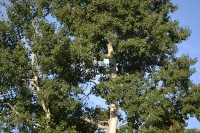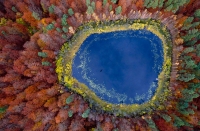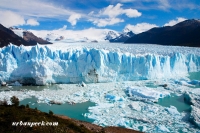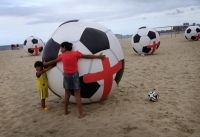
John Shanahan
CO2 Coalition, www.co2coalition.org: Mark Twain said, "It is not so much the things we don’t know that get us into trouble. Rather, the mischief is caused by things that we do know that ain’t so.” We “know” that carbon dioxide is “bad for the environment.” (In fact, it is a prerequisite for life.) We “know” that the level of carbon dioxide in the atmosphere is reaching historically dangerous levels. (In fact, we have, these past centuries, been living through a CO2 famine. We “know” that on the subject of climate change, the “science is settled”.
Francois Mellet, Electrical Engineer: Uranium in nature is a slightly radioactive metal that occurs throughout the Earth’s crust. It occurs in most rocks, in concentrations of 2 to 4 parts per million. Uranium is about 500 times more abundant than gold. It is also naturally present in most soils, as well as in many rivers and in sea water. The earth’s Uranium (chemical symbol U) was apparently formed in supernovae up to about 6.6 billion years ago. Its radioactive decay provides the main source of heat inside the earth, causing convection of molten rock and consequent continental drift.
Thormod Henriksen, Biophysics and Medical Physics Group, Dept. of Physics, University of Oslo: This is an update (2016) on radon and lung cancer. It is also a discussion on the rise and fall of the famous LNT (linear no threshold) theory. The theory has caused much anxiety and prevented a reasonable use of nuclear power, which is essential for long term prosperity of the human race, preservation of wildlife habitat, biodiversity and healthy environment. This outstanding research and teaching group at the University of Oslo presents this in a way that is interesting for the public worldwide.
Andrew Kenny, Nuclear Africa: Decommissioning of nuclear power plants is neither mysterious nor very expensive. In the USA, more than a dozen nuclear facilities have already been successfully decommissioned, and all around the world many more are being decommissioned or are about to be. New nuclear plants are easier to decommission than old ones, so as time passes the process of decommissioning will become easier and cheaper. Furthermore, as techniques improve, especially with the increased use of robotics instead of humans to dismantle the plants, costs will come down and exposure to radiation will decrease.








